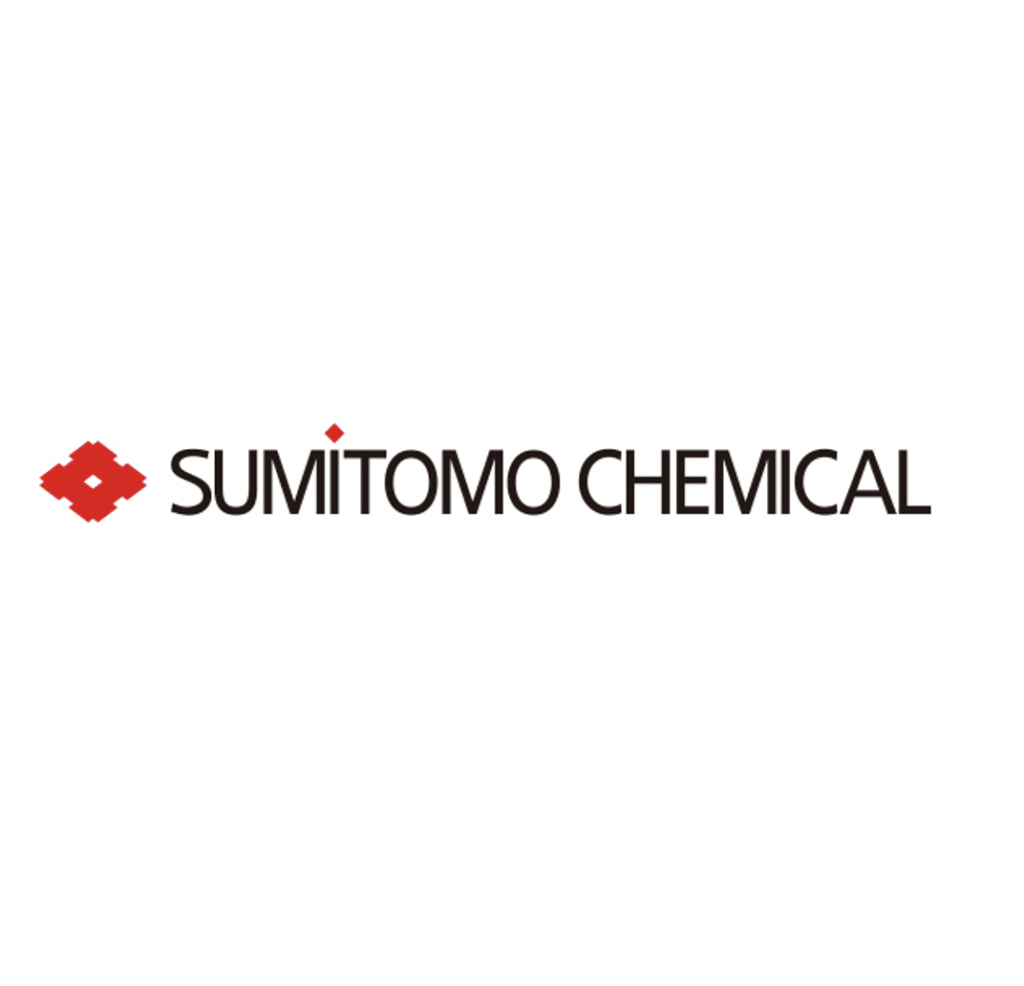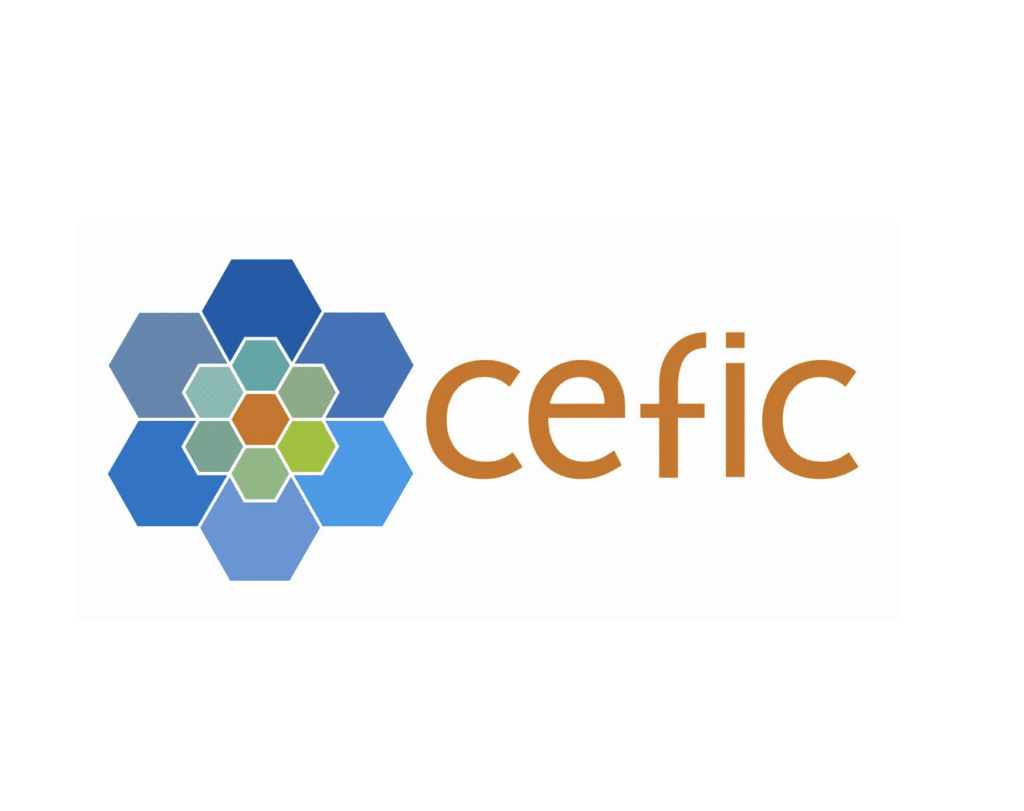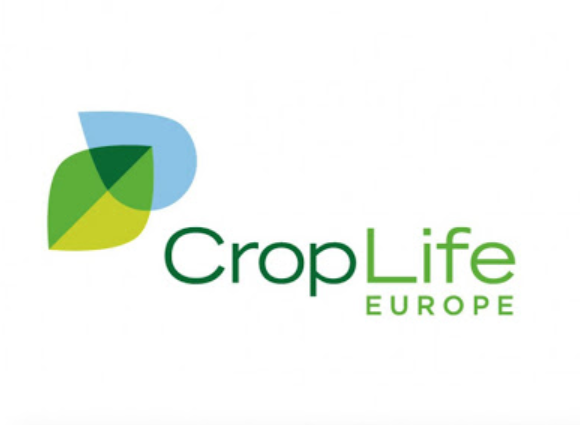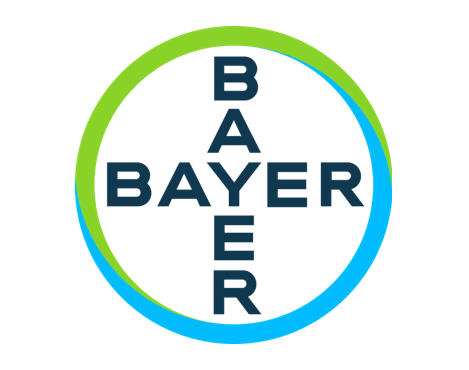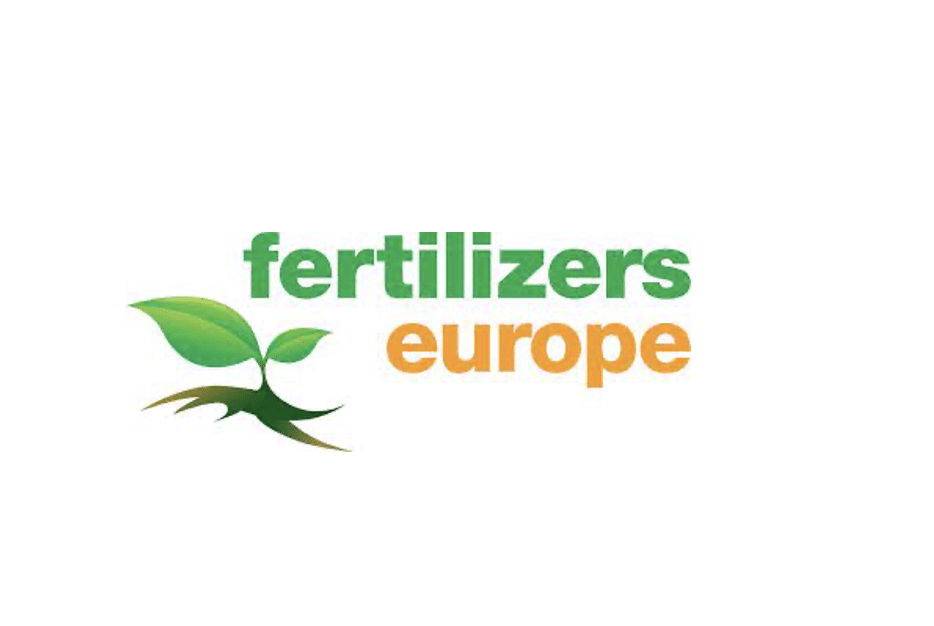Background
Sumitomo Chemical Group Companies of Europe is the European chemicals subsidiary of Sumitomo Chemical International, a diversified company of the Sumitomo Corporation Group. Sumitomo Corporation Group is one of the world’s largest global trading companies and conducts business in a range of global industries including metals, mining, construction, chemicals, energy and food.1“Sumitomo Chemical Europe,” Sumitomo Chemical Europe. Archived November 26, 2021. Archive URL: https://archive.fo/cw74f 2“SUMITOMO CHEMICAL,” Sumitomo Chemical, Archived November 26, 2021 Archive URL: https://archive.ph/wip/tzCH2 3“Sumitomo Corporation,” Sumitomo Corporation. Archived November 26, 2020. Archive URL: https://archive.fo/KNrTe
In 1994, Sumitomo Chemical Europe was established in Belgium. The company’s European Regional Headquarters for Plant Protection activities, Sumitomo Chemical Agro Europe, was formed in 1993 and is located in France.4“Sumitomo Chemical Europe,” Sumitomo Chemical Europe. Archived November 26, 2021. Archive URL: https://archive.fo/cw74f 5“Sumitomo Chemical Agro Europe,” Sumitomo Chemical Agro Europe. Archived November 26, 2020. Archive URL: https://archive.fo/NBX78n
The “Health and Crop Sciences” division of Sumitomo Chemical Europe produces a wide variety of chemical products, including crop protection chemicals, feed additives, household and public hygiene insecticides, petrochemicals and plastic products.6“Sumitomo Chemical Europe,” Sumitomo Chemical Europe. Archived November 26, 2021. Archive URL: https://archive.ph/cw74f
Sumitomo Chemical Agro Europe manufactures disease and pest control products, plant growth regulation products, agrichemical and biological pesticides, plant growth regulators (PGRs), seed treatment products and post-harvest technologies which it then exports to more than 50 European and Middle East African countries.7“Sumitomo Chemical Agro Europe,” Sumitomo Chemical Europe. Archived November 26, 2021. Archive URL: https://archive.fo/cw74f
According to analysis from the market research firm Market and Markets, Sumitomo is a leading player in the global pesticide market. Sumitomo recorded a significant sales increase after it acquired the Brazilian branch of agribusiness company Nufarm for US$1,188 million, marking Sumitomo’s entrance into crop protection and seed treatment markets across South America.8“Insect Pest Control Market by Insect Type, Control Method, Application, Form And
Region – Global Forecast to 2026,” Yahoo Finance!, September 20, 2021. Archived November 29, 2021. Archive URL: https://archive.ph/C9Ax6 9Sumitomo Chemical Co. Ltd. ““Sumitomo Chemical’s Health and Crop Sciences segment sales increase in FY 2020,” AgroPages, June 9, 2021. Archived November 26, 2021 Archive URL: https://archive.ph/wip/qSuZ5 10“Sale of Nufarm South America to Sumitomo for $1,188 million,” Nufarm, September 30, 2019. Archived November 29, 2021. Archived .pdf on file at DeSmog.
Stance on Climate Change
In a page on its website titled “Response to Climate Change,” parent corporation Sumitomo writes that “climate change is a critical issue that the world must work as one to overcome in order to realize a sustainable society.”11”Response to Climate Change,” Sumitomo Corporation. Archived November 26, 2021. Archive URL: https://archive.ph/1v8bZ
On a webpage regarding its efforts to reduce its environmental impacts, the company states that it has set multiple goals, including “protecting the atmosphere and aquatic environments, conserving resources and managing waste, properly managing chemical substances, protecting biodiversity, and protecting soil environments.”12“Here is our positioning to reduce our environmental impact” Sumitomo Corporation. Archived November 26, 2021. Archive URL: https://archive.ph/wip/jdBUG
In 2019, Sumitomo Corporation announced revisions to its “Climate Change Policy,” which aims for the company to become carbon neutral by 2050. The revised policy includes a goal to reduce Sumitomo Corporation’s CO2 emissions by at least 50 percent by 2035 compared to 2019 levels.13“Revision to “Policies on Climate Change Issues,” Sumitomo Chemical Europe, May 7, 2021. Archived November 26, 2021. URL: https://archive.ph/jdBUG 14“Policies on Climate Change Issues,” Sumitomo Corporation, 2019. Archived .pdf on file at DeSmog.
The company has developed a range of products called “Sumika Sustainable Solutions,” which it states are an important part of its plans to address climate change and other environmental impacts and build “a sustainable society.” Examples of Sumika Sustainable Solutions include packaging that claims to prolong the life of food, and materials for use in hybrid cars.15“Solutions: Contributing through Business ― Sumika Sustainable Solutions (SSS) | For a Sustainable Future,” Sumitomo Chemical, Archived November 26, 2021. Archive URL: https://archive.ph/wip/yPLBZ 16“Here is our positioning to reduce our environmental impact,” Sumitomo Corporation. Archived November 26, 2021. Archive URL: https://archive.ph/wip/jdBUG
In 2014, Sumitomo Chemical and Monsanto (prior to being acquired by Bayer in 2018) began a collaboration to expand their herbicide sales in Latin America, under which Sumitomo Chemical’s herbicide flumioxazin was included in Monsanto’s weed management system for Brazil and Argentina. The two companies had signed a prior agreement in 2010 for “long-term collaboration on crop protection and weed control” at a time when Sumitomo was increasing production of its herbicide flumioxazin.17“Sumitomo Chemical and Monsanto Expand Weed Control Collaboration to Latin America | Business & Products,” Sumitomo Corporation, December 9, 2014. Archived November 26, 2021. Archive URL: https://archive.ph/yPLBZ 18“Sumitomo to boost production of its flumioxazin herbicide,” AgNews, June 3, 2011. Archived November 26, 2021. Archive URL: https://archive.ph/6TkYk
Sumitomo Chemical Agro Europe does not appear to list a stance on climate change or any climate policies on its website, but does claim that the Sumitomo Chemical Group will “build the corporate worth, contribute to solving the problems facing society and our environment while enriching people’s lives.”19“CSR: Corporate Social Responsibility,” Sumitomo Chemical Agro Europe. Archived April 19, 2021. Archive URL: https://archive.ph/rSkx9
Role in Pesticides Controversy
Flumioxazin
Sumitomo has actively lobbied the EU for legal approval of the use of the weedkiller flumioxazin, an active substance that has been used in agricultural and aquatic herbicides since 2001. Flumioxazin is used in vineyards and orchards in 15 European Member States. Sumitomo Chemical Agro Europe currently produces five herbicides that include flumioxazin. 20Email shared with DeSmog by source in the EU parliament, 2021. 21“US EPA – Pesticides – Fact Sheet for Flumioxazin,” United States Office Environmental Protection Agency, April 21, 2001. Archived .pdf at DeSmog 22“Flumioxazin Chemical Fact Sheet,” Wisconsin Department of Natural Resources, January 2012. Archived .pdf at DeSmog 23“Evaluation of data concerning the necessity of flumioxazin as a herbicide to control a serious danger to plant health which cannot be contained by other available means, including non-chemical methods,” EFSA, January 16, 2017. Archived on December 1st, 2021. Archive URL: https://archive.ph/rlD9X 24“Herbicides,” Sumitomo Chemical Agro Europe. Archived April 19, 2021. Archive URL: https://archive.ph/mwxG3
The environmental group Pesticide Action Network Europe has included flumioxazin in its “Dirty Six,” a list of what the organization considers the most dangerous endocrine-disrupting pesticides used in Europe.25“PAN press release ScoPAFF Dec 15,” Pesticide Action Network Europe, December 10, 2015. Archived .pdf on file at DeSmog.
Endocrine-disrupting pesticides like flumioxazin are recognized as leading causes of biodiversity loss. Flumioxazin has been found to be highly toxic to algae and aquatic plants, and moderately toxic to earthworms, honey bees, fish and aquatic invertebrates. The substance can also accumulate over time within the organs and tissues of aquatic organisms, eventually increasing the concentration of flumioxazin to toxic levels.26“Endocrine-Disrupting Chemicals and Climate Change: A Worst-Case Combination for Arctic Marine Mammals and Seabirds?,” National Center for Biotechnology, October 21, 2005. Archived November 25, 2021. Archive URL:https://archive.ph/wip/7fshL 27“Flumioxazin,” University of Hertfordshire. Archived November 26, 2021. Archive URL: https://archive.ph/wip/MZtlR
Flumioxazin is considered the most likely replacement for glyphosate, a widely-used pesticide that certain scientific studies suggest is linked to cancer in humans. As of November 2021, the EU was evaluating whether or not to renew the license for the use of glyphosate in the EU beyond December 2022.28“Weedkiller glyphosate a ‘substantial’ cancer factor,” BBC News, March 20, 2019. Archived November 29, 2021. Archive URL: https://archive.ph/uEwfi 29Carey Gillam. “Only two out of 11 herbicide studies given to EU regulators deemed ‘reliable’,” The Guardian, November 26, 2021. Archived November 30, 2021. Archive URL: https://archive.fo/XT6rr
Sumitomo Chemical Agro Europe has lobbied for flumioxazin’s legal approval due to the possible glyphosate ban in Europe by 2022, which would lead to farmers using alternative herbicides, including those that are flumioxazin-based.30Email shared with DeSmog by source in the EU parliament, 2021.
In other parts of the world, flumioxazin-based herbicides are used in the cultivation of soybean, cotton and sugarcane crops. The expansion of soy production in the U.S. since 2012 has led to an incremental increase in Sumitomo’s production and sales of flumioxazin.31“Sumitomo to boost production of its flumioxazin herbicide,” AgNews, June 3, 2011.
Archived November 26, 2021. Archive URL: https://archive.ph/6TkYk
European Regulation (EC) No 1107/2009, which took effect in 2011, governs which pesticides and other agrochemical products can be sold in the EU. A related regulation, Regulation (EU) No 540/2011, compiles a list of approved active substances in the European Union that have been classed as “non-harmful” to humans and the environment. Flumioxazin was initially added to this list in 2003. Sumitomo began the process of requesting renewal for flumioxazin’s use within European countries in 2013.“32“EUR-Lex – 32009R1107 – EN – EUR-Lex,” EUR-lex,
Archived .pdf at DeSmog 33“EUR-Lex – 32009R0540 – EN – EUR-Lex,” EUR-lex,
Archived .pdf at DeSmog 34“Conclusion on Pesticide Peer Review,” EFSA, 2014. Archived .pdf at DeSmog
Since 2003, the EU has extended its approval for flumioxazin six times, despite yearly objections to the extension by European Parliament Rapporteurs. Sumitomo Chemical Europe representatives have lobbied members to support renewal of flumioxazin’s approval period.35Email shared with DeSmog by source in the EU parliament, 2021. 36“Resolution on Commission Implementing Regulation (EU) 2019/707,” ParlTrack, Archive URL: https://archive.ph/wip/IGdcc Archived .pdf on file at DeSmog.
In a 2020 report, the European Food and Safety Agency (EFSA) stated that the organization was not yet able to determine whether flumioxazin is an endocrine disruptor. The report concluded that “the assessment of the endocrine disruptor properties for humans and non-target arthropods could not be finalized due to incomplete data sets received.”37“Updated peer review of the pesticide risk assessment of the active substance flumioxazin,” European Food and Safety Agency, September 29, 2020. Archived November 26, 2021. Archive URL: https://archive.ph/wip/bCYA0
In May 2021, CropLife Europe distributed a position paper backing the renewal of flumioxazin to members of the European Parliament’s ENVI Committee. This occurred just prior to a vote regarding extension of the approval periods for several active substances. CropLife Europe’s paper stated, “The extension of the approval period for these substances is not due to any scientific concern,” and that if these substances were banned, politicians would be “[taking] away solutions from EU growers and farmers.”38“Position Paper,” CropLife Europe, May 25, 2021. Archived .pdf on file at DeSmog.
EU Focus, an organization lobbying on behalf of Sumitomo Chemical Agro Europe within the European Parliament, has advocated for the extension of flumioxazin’s approval. In a paper titled “Why flumioxazin required another extension of its approval – Motion for a Resolution by the EP,”, EU Focus argued flumioxazin’s approval should be extended, because the March 2021 study to define whether flumioxazin provokes endocrine disruption was not yet finalized and could take two and a half to five more years to complete.39“EU Focus,” European Transparency Register. Archived November 26, 2021. Archive URL: https://archive.ph/wip/vaM3F 40“Why Flumioxazin required another extension of its approval. Motion for a Resolution by the EP,” EU Focus. Archived .pdf on file at DeSmog.
In meetings with European Parliament members, Sumitomo said that non-renewal of flumioxazin would undermine “the reputation of the product,” and that members of the European Parliament should not have a say in the substance’s renewal as “they do not have any technical knowledge on it.”41Interview with source in the EU parliament, 2021.
In October 2021, the European Commission voted on the renewal of flumioxazin in its Standing Committee on Plants, Animals, Food and Feed (SCOPAFF).42“Plant Health PAFF,” European Commission, Archived November 29, 2021. Archive URL: https://archive.ph/wip/68oNe
Health and environmental NGOs Pesticide Action Network (PAN) Europe and the Health and Environment Alliance (HEAL) had called upon EU member nations to oppose the European Commission’s renewal proposal. In November 2021, the SCOPAFF experts voted to extend the use of flumioxazin for another year. In response, PAN Europe considered bringing suit in the EU Court of Justice. The current approval of flumioxazin expires on June 30, 2022.43“Members of the ScoPAFF committee – Section “Phytopharmaceuticals – Legislation” HEAL Europe, October 7, 2021. Archived .pdf at DeSmog 44“Disregarding the European Green Deal, Two Endocrine Disrupting Pesticides Reapproved: Will the Court of Justice Fix This?,” Pesticide Action Network, November 10, 2021. Archived November 26, 2021, Archive URL: https://archive.ph/bCYA0 45“Fornyet godkjenning av flumioksazin som aktivt stoff i plantevernmidler,” Europalov, November, 11 2021. Archived December 1, 2021. Archive URL: https://archive.ph/XMwh8
Neonicotinoids
In a January 2020 article headlined “The Pesticide Industry’s Playbook for Poisoning the Earth,” The Intercept named Sumitomo as one of the world’s leading neonicotinoid producers alongside Syngenta, Bayer and BASF.46Lee Fang. “The Pesticide Industry’s Playbook for Poisoning the Earth,” The Intercept, January 18, 2020. Archived November 29, 2021. Archive URL: https://archive.ph/wKiF6
The European Food Safety Authority (EFSA) has published three reports with scientific findings confirming the toxicity to bees of three neonicotinoids: imidacloprid, thiamethoxam and Sumitomo’s clothianidin. Neonicotinoids are a class of insecticides chemically similar to nicotine.47“Neonicotinoids: risks to bees confirmed,” EFSA, February 28, 2018, Archived November 29, 2021. Archive URL: https://archive.ph/GHLxr
In 2018, Sumitomo Chemical and Sumitomo Chemical Agro Europe expressed their opposition to the EU’s decision to ban the three neonicotinoids for agricultural outdoor uses. Neonicotinoids are suspected to be a major factor contributing to the decline in pollinator populations, which can lead to negative effects on plant biodiversity and the production of crops that depend on insect pollination.48“Sumitomo Chemical and Sumitomo Chemical Agro Europe express concern about the EU Decision to ban Neonicotinoids for outdoor uses,” Sumitomo Chemical Agro Europe, April 27, 2018. Archived November 29, 2021. Archive URL: https://archive.ph/WF1dc 49“Sublethal concentrations of clothianidin affect honey bee colony growth and hive CO2
concentration” Nature, February 23, 2021. Archived November 29, 2021. Archive URL:https://archive.ph/wip/VvYv5 50Dimitry Wintermantel, Barbara Locke, Georg K. S. Andersson, Emilia Semberg, Eva Forsgren, Julia Osterman, Thorsten Rahbek Pedersen, Riccardo Bommarco, Henrik G. Smith, Maj Rundlöf & Joachim R. de Miranda. “Field-level clothianidin exposure affects bumblebees but generally not their pathogens,” Nature, December 21, 2018. Archived November 29, 2021. Archive URL: https://archive.ph/wip/eTkRh
Sumitomo Chemical has stated that the decision of the EFSA to ban clothianidin relied on a risk assessment with “overly conservative” views. The company added that the decision “disregarded a large number of sound scientific studies submitted by Sumitomo Chemical and Sumitomo Chemical Agro Europe, suggesting the studies are not exhaustive or reliable enough to draw conclusions on low level effects of clothianidin uses.”51“Sumitomo Chemical Reiterates the Effectiveness and Safety of Clothianidin, an Active Ingredient in Some of its Crop Protection Products,” Sumitomo Chemical, March 18, 2018. Archived November 29, 2021, Archive URL:https://archive.ph/wip/ggupq
In the same press release, Sumitomo Chemical stated that “this new limitation will prevent farmers from using a very effective and safe tool to safeguard efficient agricultural practices and the food supply in Europe.”52“Sumitomo Chemical Reiterates the Effectiveness and Safety of Clothianidin, an Active Ingredient in Some of its Crop Protection Products,” Sumitomo Chemical, March 18, 2018. Archived November 29, 2021, Archive URL:https://archive.ph/wip/ggupq
Lobbying
According to the EU Transparency Register, Sumitomo Chemical Europe spent between €25,000 – €49,999 on lobbying in 2020.53“Sumitomo Chemical Europe” EU Transparency Register, July 27,
2021. Archived November 29, 2021, Archive URL:https://archive.ph/Cy9GZ
Sumitomo Chemical Europe is a client of lobby consultancies registered within the European Union. In 2019, Sumitomo Chemical Europe spent between € 200,000 – € 299,999 on the services of EU Focus. In 2020, Sumitomo Chemical Agro Europe S.A.S spent between €100,000 – €199,999 on the services of EPPA S.A.54“EU Focus,” European Transparency Register. Archived November 26, 2021. Archive URL: https://archive.ph/wip/vaM3F 55“EPPA,” European Transparency Register. Archived November 25, 2021. Archive URL: https://archive.ph/wip/FBpaB
Affiliations
Sumitomo is part of the European Chemical Industry Council (Cefic), an industry association representing the interests of chemical producers in Europe.56“List of Corporate Members,” CEFIC. Archived November 30, 2021. Archived .pdf on file at DeSmog.
Sumitomo Chemical is also a member of CropLife International and a member of CropLife Europe, two major agribusiness industry groups with extensive histories of lobbying in the European Union.57“Members,” CropLife International. Archived November 30, 2021. Archive URL: https://archive.fo/PfPk0 58“Our Network,” CropLife Europe. Archived November 30, 2021. Archive URL: https://archive.fo/SvZU3
Sumitomo Chemical Europe is a member of the Japan Business Council in Europe, an organization that represents the interests of 90 multinational companies of “Japanese parentage” that operate in Europe.59“Members list,” Japanese Business Council in Europe. Archived November 30, 2021. Archive URL: https://archive.fo/jchAL 60ALTERNATIVE for Hydrogen EU: “Sumitomo’s EU Transparency Register,” European Commission, July 27,
2021. Archived November 29, 2021, Archive URL:https://archive.ph/Cy9GZ
Since 2010, Sumitomo Chemical has owned a 20 percent stake in Nufarm. Nufarm is a Dutch agrochemical company that is a member of the Glyphosate Renewal Group, a coalition of firmss calling for the renewal of authorization of the herbicide glyphosate for use in the European Union.61“Nufarm, Sumitomo co-operate to combat glyphosate resistant weeds,” AgroPages, July 6, 2010. Archived November 29, 2021. Archive URL: https://archive.ph/eHCbF
In 2017, Sumitomo Chemical Company, the parent company of Sumitomo Chemicals Europe, signed on to a collaboration with Bayer and a collaboration with BASF to develop new fungicides. Sumitomo Europe submitted an application for European registration of new fungicides developed thanks to these collaborations, to be commercially launched in 2023.62“Sumitomo Chemical and Bayer agree to collaborate on new fungicidal mixtures in Brazil” Sumitomo Chemical Agro, July 27,2017. Archived November 29, 2021. Archive URL: https://archive.ph/YhHxC 63“Sumitomo Chemical and BASF sign global collaboration agreement to develop new,” Sumitomo Chemical Agro, June 13, 2017. Archived November 29, 2021. Archive URL: https://archive.ph/M3iJ7 64“Sumitomo Chemical Submits Registration Application for New INDIFLIN™ Fungicide in EU,” Sumitomo Chemical Agro February 25, 2019. Archived November 29, 2021. Archive URL:https://archive.ph/BZs1n
Resources
- 1“Sumitomo Chemical Europe,” Sumitomo Chemical Europe. Archived November 26, 2021. Archive URL: https://archive.fo/cw74f
- 2“SUMITOMO CHEMICAL,” Sumitomo Chemical, Archived November 26, 2021 Archive URL: https://archive.ph/wip/tzCH2
- 3“Sumitomo Corporation,” Sumitomo Corporation. Archived November 26, 2020. Archive URL: https://archive.fo/KNrTe
- 4“Sumitomo Chemical Europe,” Sumitomo Chemical Europe. Archived November 26, 2021. Archive URL: https://archive.fo/cw74f
- 5“Sumitomo Chemical Agro Europe,” Sumitomo Chemical Agro Europe. Archived November 26, 2020. Archive URL: https://archive.fo/NBX78n
- 6“Sumitomo Chemical Europe,” Sumitomo Chemical Europe. Archived November 26, 2021. Archive URL: https://archive.ph/cw74f
- 7“Sumitomo Chemical Agro Europe,” Sumitomo Chemical Europe. Archived November 26, 2021. Archive URL: https://archive.fo/cw74f
- 8“Insect Pest Control Market by Insect Type, Control Method, Application, Form And
Region – Global Forecast to 2026,” Yahoo Finance!, September 20, 2021. Archived November 29, 2021. Archive URL: https://archive.ph/C9Ax6 - 9Sumitomo Chemical Co. Ltd. ““Sumitomo Chemical’s Health and Crop Sciences segment sales increase in FY 2020,” AgroPages, June 9, 2021. Archived November 26, 2021 Archive URL: https://archive.ph/wip/qSuZ5
- 10“Sale of Nufarm South America to Sumitomo for $1,188 million,” Nufarm, September 30, 2019. Archived November 29, 2021. Archived .pdf on file at DeSmog.
- 11”Response to Climate Change,” Sumitomo Corporation. Archived November 26, 2021. Archive URL: https://archive.ph/1v8bZ
- 12“Here is our positioning to reduce our environmental impact” Sumitomo Corporation. Archived November 26, 2021. Archive URL: https://archive.ph/wip/jdBUG
- 13“Revision to “Policies on Climate Change Issues,” Sumitomo Chemical Europe, May 7, 2021. Archived November 26, 2021. URL: https://archive.ph/jdBUG
- 14“Policies on Climate Change Issues,” Sumitomo Corporation, 2019. Archived .pdf on file at DeSmog.
- 15“Solutions: Contributing through Business ― Sumika Sustainable Solutions (SSS) | For a Sustainable Future,” Sumitomo Chemical, Archived November 26, 2021. Archive URL: https://archive.ph/wip/yPLBZ
- 16“Here is our positioning to reduce our environmental impact,” Sumitomo Corporation. Archived November 26, 2021. Archive URL: https://archive.ph/wip/jdBUG
- 17“Sumitomo Chemical and Monsanto Expand Weed Control Collaboration to Latin America | Business & Products,” Sumitomo Corporation, December 9, 2014. Archived November 26, 2021. Archive URL: https://archive.ph/yPLBZ
- 18“Sumitomo to boost production of its flumioxazin herbicide,” AgNews, June 3, 2011. Archived November 26, 2021. Archive URL: https://archive.ph/6TkYk
- 19“CSR: Corporate Social Responsibility,” Sumitomo Chemical Agro Europe. Archived April 19, 2021. Archive URL: https://archive.ph/rSkx9
- 20Email shared with DeSmog by source in the EU parliament, 2021.
- 21“US EPA – Pesticides – Fact Sheet for Flumioxazin,” United States Office Environmental Protection Agency, April 21, 2001. Archived .pdf at DeSmog
- 22“Flumioxazin Chemical Fact Sheet,” Wisconsin Department of Natural Resources, January 2012. Archived .pdf at DeSmog
- 23
- 24“Herbicides,” Sumitomo Chemical Agro Europe. Archived April 19, 2021. Archive URL: https://archive.ph/mwxG3
- 25“PAN press release ScoPAFF Dec 15,” Pesticide Action Network Europe, December 10, 2015. Archived .pdf on file at DeSmog.
- 26“Endocrine-Disrupting Chemicals and Climate Change: A Worst-Case Combination for Arctic Marine Mammals and Seabirds?,” National Center for Biotechnology, October 21, 2005. Archived November 25, 2021. Archive URL:https://archive.ph/wip/7fshL
- 27“Flumioxazin,” University of Hertfordshire. Archived November 26, 2021. Archive URL: https://archive.ph/wip/MZtlR
- 28“Weedkiller glyphosate a ‘substantial’ cancer factor,” BBC News, March 20, 2019. Archived November 29, 2021. Archive URL: https://archive.ph/uEwfi
- 29Carey Gillam. “Only two out of 11 herbicide studies given to EU regulators deemed ‘reliable’,” The Guardian, November 26, 2021. Archived November 30, 2021. Archive URL: https://archive.fo/XT6rr
- 30Email shared with DeSmog by source in the EU parliament, 2021.
- 31“Sumitomo to boost production of its flumioxazin herbicide,” AgNews, June 3, 2011.
Archived November 26, 2021. Archive URL: https://archive.ph/6TkYk - 32“EUR-Lex – 32009R1107 – EN – EUR-Lex,” EUR-lex,
Archived .pdf at DeSmog - 33“EUR-Lex – 32009R0540 – EN – EUR-Lex,” EUR-lex,
Archived .pdf at DeSmog - 34“Conclusion on Pesticide Peer Review,” EFSA, 2014. Archived .pdf at DeSmog
- 35Email shared with DeSmog by source in the EU parliament, 2021.
- 36“Resolution on Commission Implementing Regulation (EU) 2019/707,” ParlTrack, Archive URL: https://archive.ph/wip/IGdcc Archived .pdf on file at DeSmog.
- 37“Updated peer review of the pesticide risk assessment of the active substance flumioxazin,” European Food and Safety Agency, September 29, 2020. Archived November 26, 2021. Archive URL: https://archive.ph/wip/bCYA0
- 38“Position Paper,” CropLife Europe, May 25, 2021. Archived .pdf on file at DeSmog.
- 39“EU Focus,” European Transparency Register. Archived November 26, 2021. Archive URL: https://archive.ph/wip/vaM3F
- 40“Why Flumioxazin required another extension of its approval. Motion for a Resolution by the EP,” EU Focus. Archived .pdf on file at DeSmog.
- 41Interview with source in the EU parliament, 2021
- 42“Plant Health PAFF,” European Commission, Archived November 29, 2021. Archive URL: https://archive.ph/wip/68oNe
- 43“Members of the ScoPAFF committee – Section “Phytopharmaceuticals – Legislation” HEAL Europe, October 7, 2021. Archived .pdf at DeSmog
- 44“Disregarding the European Green Deal, Two Endocrine Disrupting Pesticides Reapproved: Will the Court of Justice Fix This?,” Pesticide Action Network, November 10, 2021. Archived November 26, 2021, Archive URL: https://archive.ph/bCYA0
- 45“Fornyet godkjenning av flumioksazin som aktivt stoff i plantevernmidler,” Europalov, November, 11 2021. Archived December 1, 2021. Archive URL: https://archive.ph/XMwh8
- 46Lee Fang. “The Pesticide Industry’s Playbook for Poisoning the Earth,” The Intercept, January 18, 2020. Archived November 29, 2021. Archive URL: https://archive.ph/wKiF6
- 47“Neonicotinoids: risks to bees confirmed,” EFSA, February 28, 2018, Archived November 29, 2021. Archive URL: https://archive.ph/GHLxr
- 48“Sumitomo Chemical and Sumitomo Chemical Agro Europe express concern about the EU Decision to ban Neonicotinoids for outdoor uses,” Sumitomo Chemical Agro Europe, April 27, 2018. Archived November 29, 2021. Archive URL: https://archive.ph/WF1dc
- 49“Sublethal concentrations of clothianidin affect honey bee colony growth and hive CO2
concentration” Nature, February 23, 2021. Archived November 29, 2021. Archive URL:https://archive.ph/wip/VvYv5 - 50Dimitry Wintermantel, Barbara Locke, Georg K. S. Andersson, Emilia Semberg, Eva Forsgren, Julia Osterman, Thorsten Rahbek Pedersen, Riccardo Bommarco, Henrik G. Smith, Maj Rundlöf & Joachim R. de Miranda. “Field-level clothianidin exposure affects bumblebees but generally not their pathogens,” Nature, December 21, 2018. Archived November 29, 2021. Archive URL: https://archive.ph/wip/eTkRh
- 51“Sumitomo Chemical Reiterates the Effectiveness and Safety of Clothianidin, an Active Ingredient in Some of its Crop Protection Products,” Sumitomo Chemical, March 18, 2018. Archived November 29, 2021, Archive URL:https://archive.ph/wip/ggupq
- 52“Sumitomo Chemical Reiterates the Effectiveness and Safety of Clothianidin, an Active Ingredient in Some of its Crop Protection Products,” Sumitomo Chemical, March 18, 2018. Archived November 29, 2021, Archive URL:https://archive.ph/wip/ggupq
- 53“Sumitomo Chemical Europe” EU Transparency Register, July 27,
2021. Archived November 29, 2021, Archive URL:https://archive.ph/Cy9GZ - 54“EU Focus,” European Transparency Register. Archived November 26, 2021. Archive URL: https://archive.ph/wip/vaM3F
- 55“EPPA,” European Transparency Register. Archived November 25, 2021. Archive URL: https://archive.ph/wip/FBpaB
- 56“List of Corporate Members,” CEFIC. Archived November 30, 2021. Archived .pdf on file at DeSmog.
- 57“Members,” CropLife International. Archived November 30, 2021. Archive URL: https://archive.fo/PfPk0
- 58
- 59“Members list,” Japanese Business Council in Europe. Archived November 30, 2021. Archive URL: https://archive.fo/jchAL
- 60ALTERNATIVE for Hydrogen EU: “Sumitomo’s EU Transparency Register,” European Commission, July 27,
2021. Archived November 29, 2021, Archive URL:https://archive.ph/Cy9GZ - 61“Nufarm, Sumitomo co-operate to combat glyphosate resistant weeds,” AgroPages, July 6, 2010. Archived November 29, 2021. Archive URL: https://archive.ph/eHCbF
- 62“Sumitomo Chemical and Bayer agree to collaborate on new fungicidal mixtures in Brazil” Sumitomo Chemical Agro, July 27,2017. Archived November 29, 2021. Archive URL: https://archive.ph/YhHxC
- 63“Sumitomo Chemical and BASF sign global collaboration agreement to develop new,” Sumitomo Chemical Agro, June 13, 2017. Archived November 29, 2021. Archive URL: https://archive.ph/M3iJ7
- 64“Sumitomo Chemical Submits Registration Application for New INDIFLIN™ Fungicide in EU,” Sumitomo Chemical Agro February 25, 2019. Archived November 29, 2021. Archive URL:https://archive.ph/BZs1n

